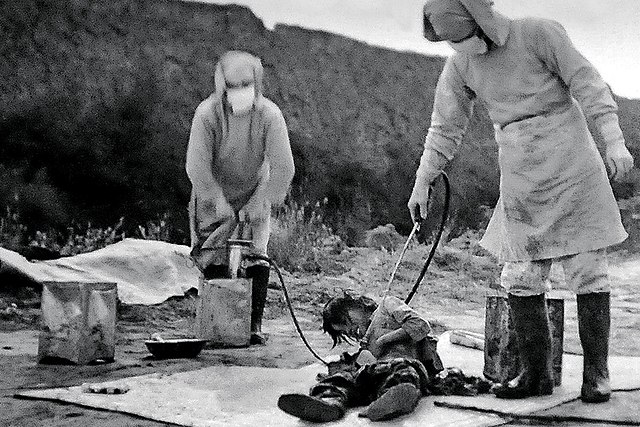Biological warfare, also known as germ warfare, is the use of biological toxins or infectious agents such as bacteria, viruses, insects, and fungi with the intent to kill, harm or incapacitate humans, animals or plants as an act of war. Biological weapons are living organisms or replicating entities. Entomological (insect) warfare is a subtype of biological warfare.
Shiro Ishii, commander of Unit 731, which performed human vivisections and other biological experimentation
Researchers working in Class III cabinets at the U.S. Army Biological Warfare Laboratories, Camp Detrick, Maryland (1940s).
U.S. authorities granted Unit 731 officials immunity from prosecution in return for access to their research.
War is an intense armed conflict between states, governments, societies, or paramilitary groups such as mercenaries, insurgents, and militias. It is generally characterized by extreme violence, destruction, and mortality, using regular or irregular military forces. Warfare refers to the common activities and characteristics of types of war, or of wars in general. Total war is warfare that is not restricted to purely legitimate military targets, and can result in massive civilian or other non-combatant suffering and casualties.
Mural of War (1896), by Gari Melchers
The Egyptian siege of Dapur in the 13th century BCE, from Ramesseum, Thebes.
Japanese samurai attacking a Mongol ship, 13th century
Finnish soldiers during the Winter War.







